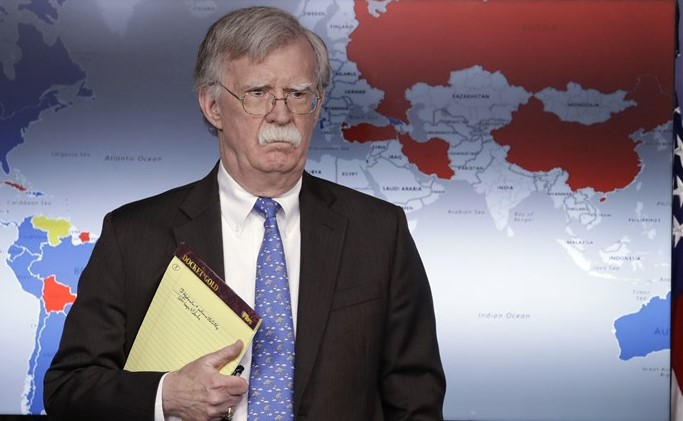Venezuela crisis grows
January 30, 2019 | Expert Insights

National Security Advisor John Bolton has warned the government in Caracas that he denounced as “illegitimate”, not to lay a finger on Juan Guaido, the opposition figure Washington considers to be Venezuela’s President.
Background
From 1948-1958 the South American country was under military dictatorship. 23rd January marks the day a civilian-military movement overthrew the government of Gen. Marcos Pérez Jiménez in Venezuela. Gen. Marcos Pérez Jiménez was feared and hated in his country while mocked as the prototype of the Latin American military despot. During his reign, government spending on education and health was slashed, and the earnings from oil sales were diverted into lavish, costly and superfluous construction projects.
Nicolas Maduro took office in 2013. Under his leadership, there has been a spike in inflation and shortage of goods. A drop in oil prices has added to the administration’s problems. He has retained power by weakening institutions and rigging elections. He has been accused of committing serious human rights abuses and engaging in rampant corruption. Despite having the world's largest proven oil deposits, many Venezuelans are living in abject poverty.
The UN says 1.6 million Venezuelans have fled the country since the economic meltdown in 2015. Venezuela’s economy has contracted by 35 per cent since 2013, much larger than the one experienced by the USA during the Great Depression in the 1930s.
On January 23, US President Donald Trump recognised Juan Guaido as the ‘legitimate’ President of Venezuela. In retaliation, Nicolas Maduro severed all diplomatic ties with Washington and asked all US diplomatic staff to leave within 72 hours.
Analysis
US National Security Advisor has issued an ultimatum to the Maduro faction in the ongoing unrest in Venezuela.
Bolton’s threats came after Venezuelan AG Tarek Saab announced that Guaido would be investigated for “serious crimes that threaten the constitutional order.” The authorities may freeze Guaido’s bank accounts and seek to prevent him from leaving the country, local media reported.
Bolton and Treasury Secretary Steven Mnuchin announced the US would seize all assets of Venezuela’s oil company PDVSA, and channel them into accounts that would be accessible only by Guaido or a new elected government the US would approve of.
“Let me reiterate – there will be serious consequences for those who attempt to subvert democracy and harm Guaido,” Bolton tweeted on Tuesday, addressing the “illegitimate former” attorney general of Venezuela who he said threatened the self-proclaimed president.
Guaido declared himself president earlier this month, with the backing of Venezuela’s National Assembly – the legislature last elected in 2015, which the government in Caracas considers lapsed with the 2017 election of the Constitutional Assembly. President Nicolas Maduro was re-elected in May 2018, but the US-backed opposition has denounced him as a “usurper.”
The US, Canada, Australia and most of the OAS members have recognized Guaido as president, while Russia, China, Cuba and Bolivia have gone on the record in support of Maduro. Maduro has denounced US meddling as an attempted coup and told the Trump administration on Monday to keep its “hands off” Venezuela.
Bolton’s threats come on the heels of his comments at the White House on Monday, that many Venezuelan officers are considering defecting to Guaido’s side, and the excitement about a strategically visible scribble in his notepad about “5,000 troops to Colombia.” The government in Bogota, however, says it has no knowledge of any US troops arriving.
The US appears very serious about regime change in Caracas. Last week, the State Department appointed Elliott Abrams, a convicted Iran-Contra participant with a long sordid history in Latin America, as its point man on “bringing democracy” to Venezuela. Meanwhile, oil prices rose as concerns about supply disruptions following U.S. sanctions on Venezuela’s oil industry outweighed downward pressure from a darkening outlook for the global economy. International Brent crude oil futures rose 17 cents, or 0.3 percent, to $61.49 per barrel. The gains followed a 2-percent price jump in the previous session, when markets first digested the U.S. sanctions on Venezuela’s oil exports.
Washington announced export sanctions against Venezuela’s state-owned oil firm PDVSA, limiting transactions between U.S. companies that do business with Venezuela through purchases of crude oil and sales of refined products.
Assessment
Our assessment is that the situation in Venezuela is precarious as the country is on the verge of an economic and social disaster. We believe that a limited intervention in Venezuela might trigger a regime change.








Comments